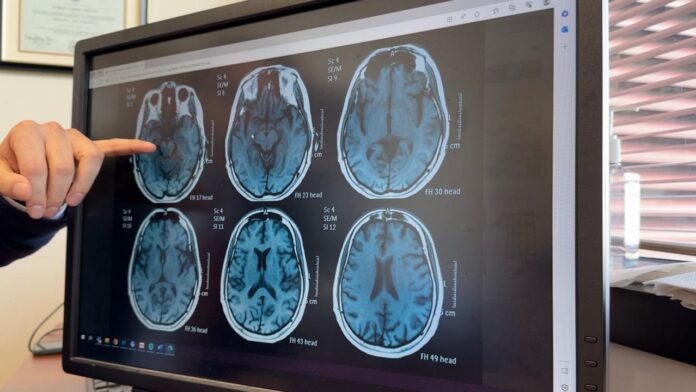CHARLOTTE, N.C. — For the first time, medical professionals and advocates, tasked with helping thousands of North Carolinians fight Alzheimer’s disease and other forms of dementia, have county by county data showing the spread of the diseases across the state.
In Mecklenburg County it is estimated 12.5% of adults 65 years old and older are dealing with the disease, while in Wake County it’s roughly 11%. Across the state, no county had rates lower than 8%, according to data presented at the Alzheimer’s Association International Conference.
The eastern and southeastern United States had the highest rates, according to the data.
Despite the numbers, a neurologist and other advocates in North Carolina said the fight against the disease is at a turning point, creating hope for the first time in years.
Dr. Robert Wiggins, a neurologist and memory care director at Novant Health, said new advances in the treatment of Alzheimer’s are changing patient care.
“Actually, we’re going to be needing to see the actual proteins, called amyloid, on patient’s brains. And, if we can see that in the right quantities, in the right places, then we start to know, ‘OK. This is a person who does have Alzheimer’s disease, and this person is a good candidate for new medication,” Wiggins explained.
The focus on the protein is related to new advancements in treatment, specifically two drugs which are set to target the protein in the brain.
The FDA traditionally approved the first-ever drug treatment shown to alter the course of Alzheimer’s disease, Lecanemab or Leqembi, with a potential second treatment on the way, according to the association and Wiggins.
“For the longest time though we didn’t have any medication that would actually slow down the progression of Alzheimer’s disease. But actually in the recent months, there has been really, really exciting and very, very hopeful news,” Wiggins said.
The drugs Leqembi, and another in development, Donanemab, are shown to slow the disease, giving patients more time to discuss future care with family, get affairs in order and otherwise enjoy somewhat normal life.
“We’re really excited and even hopeful, in that — though the progression, though the slow worsening will continue, by slowing it down, that’s hopefully weeks, months, even years of quality life that we can give back to people,” Wiggins explained.
While Leqembi just received FDA approval, Wiggins said he hopes to be prescribing the drug here in Charlotte this year.
In the meantime, new data showing the spread of the disease in each of North Carolina’s counties is set to be another game changer for care and advocates. Christine John-Fuller with the Alzheimer’s Association said it will help better target geographic areas of focus.
“It allows us to be able to have the ability to focus on where there needs to be services, where we have high risk, under-served individuals, higher rates of prevalence from that stand point. But it also then helps with a funding perspective,” John-Fuller said.
The data will help state lawmakers, medical organizations and advocacy groups directly target the best areas for current and future resources, according to John-Fuller.
Additionally, John-Fuller said Alzheimer’s and dementia care was set to enter a new era.
“We really consider it an era of treatment,” John-Fuller said. “These are the first disease-modifying treatments that allow us to be able to slow the progression of the disease. So, it’s a game-changer.”
However, Wiggins and John-Fuller were careful to emphasize the two new treatments are not a cure or reversing agent.
“These medicines aren’t cures, and they don’t actually reverse the effects. But what they do, is actually slow down worsening,” Wiggins added.
Additionally, the drugs are likely most effective and safest for patients in early stages of cognitive decline, according to Wiggins. Meaning, it is even more important to get accurate and early diagnoses of the disease, something Wiggins said puts the onus on families and loved ones to be willing to have tough conversations with relatives, who start to show symptoms.
But, as he sat in one of his exam rooms, Wiggins said Alzheimer’s care is about to change drastically for the better.
“It is a completely different ballgame,” Wiggins described. “It is a completely different way of treating patients.”



